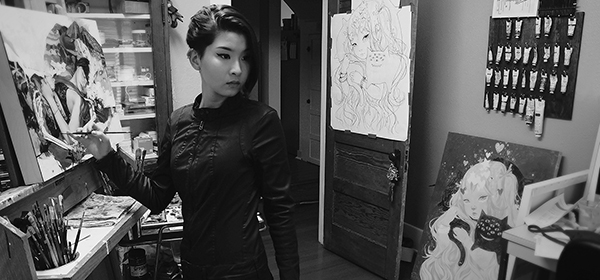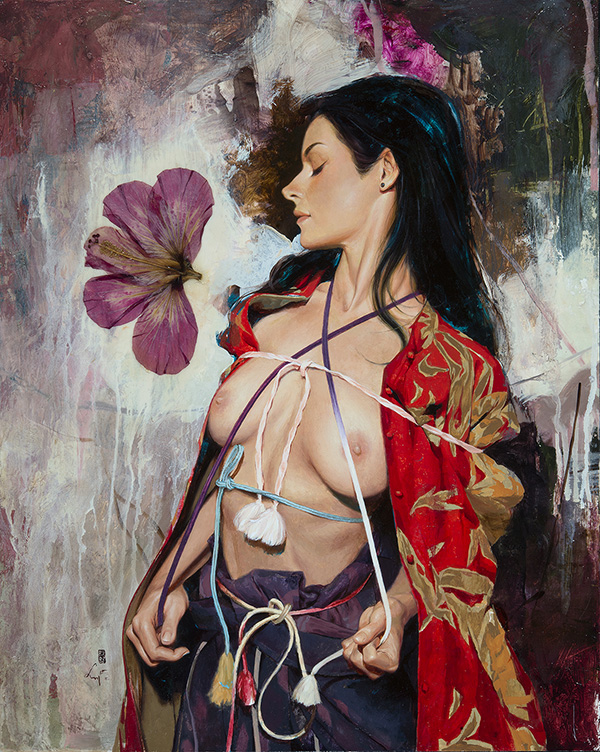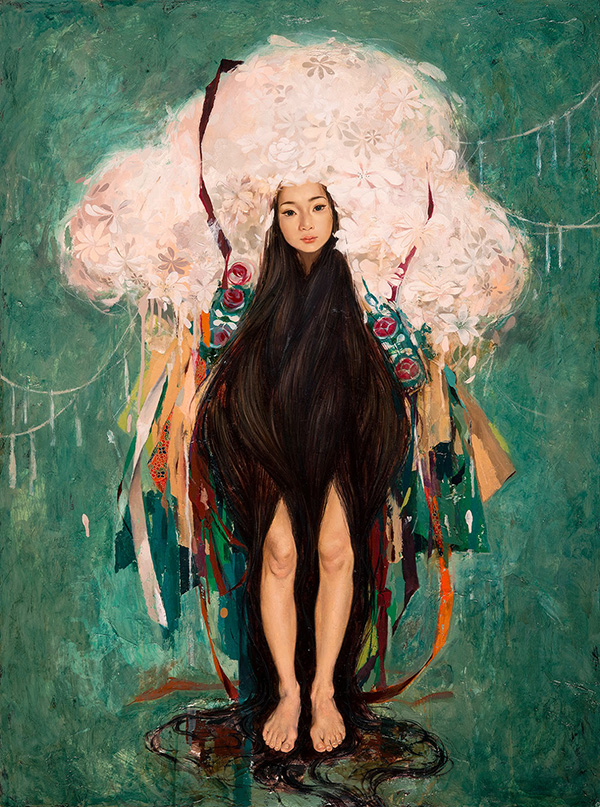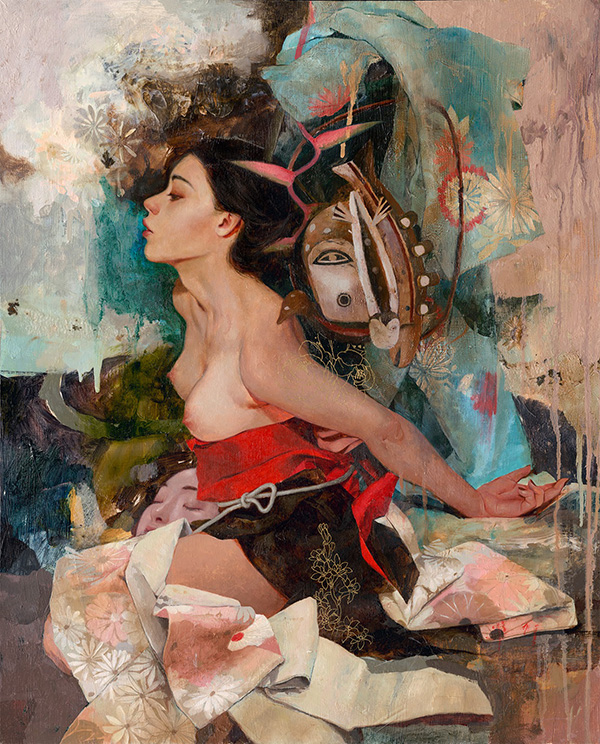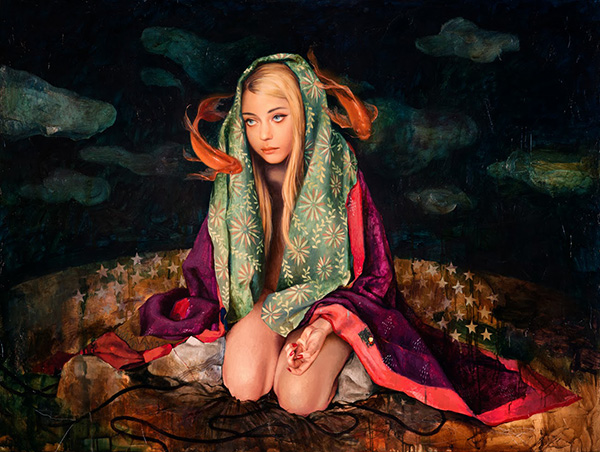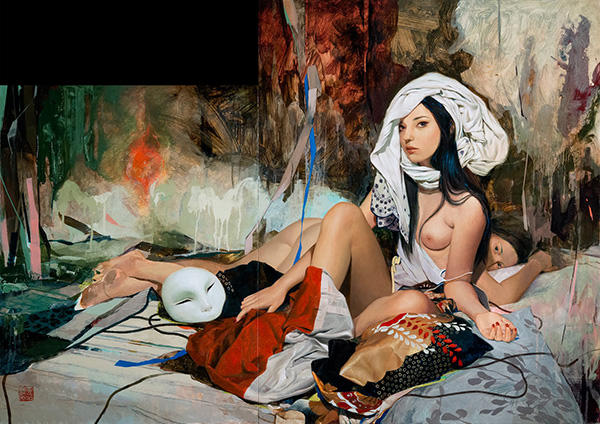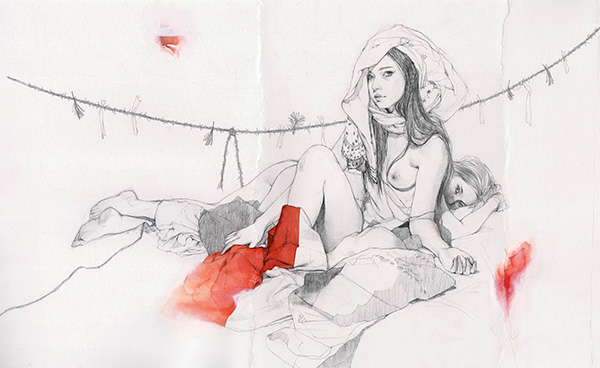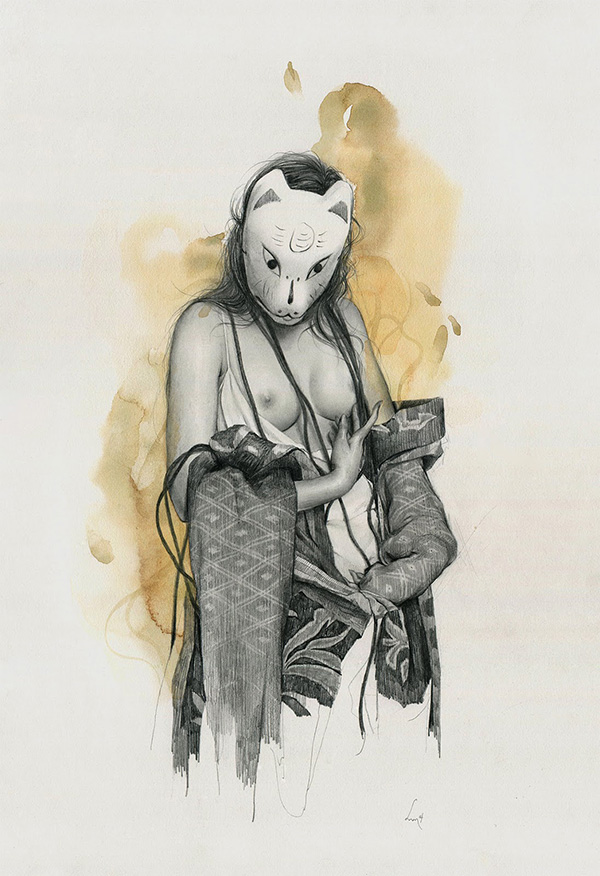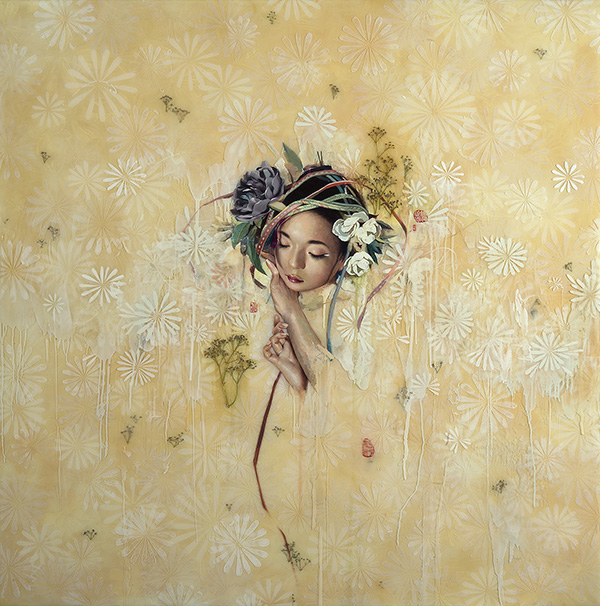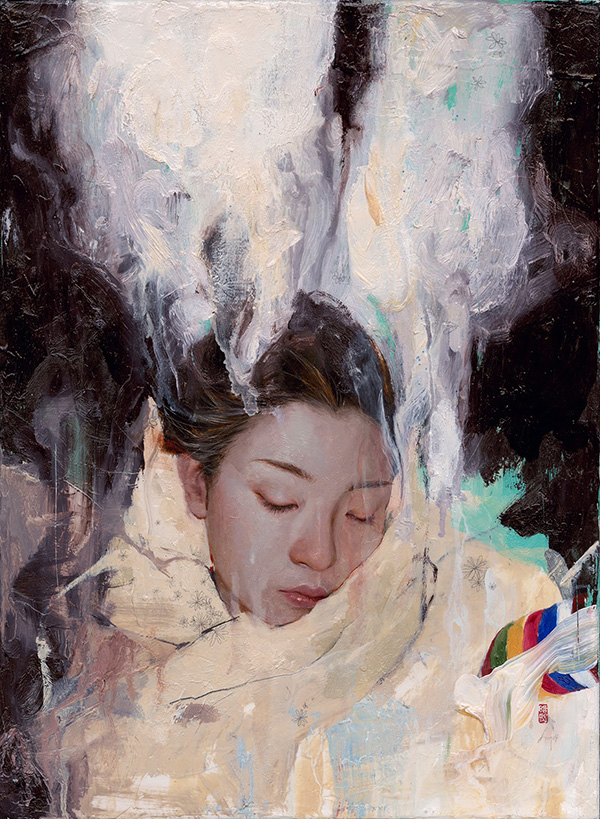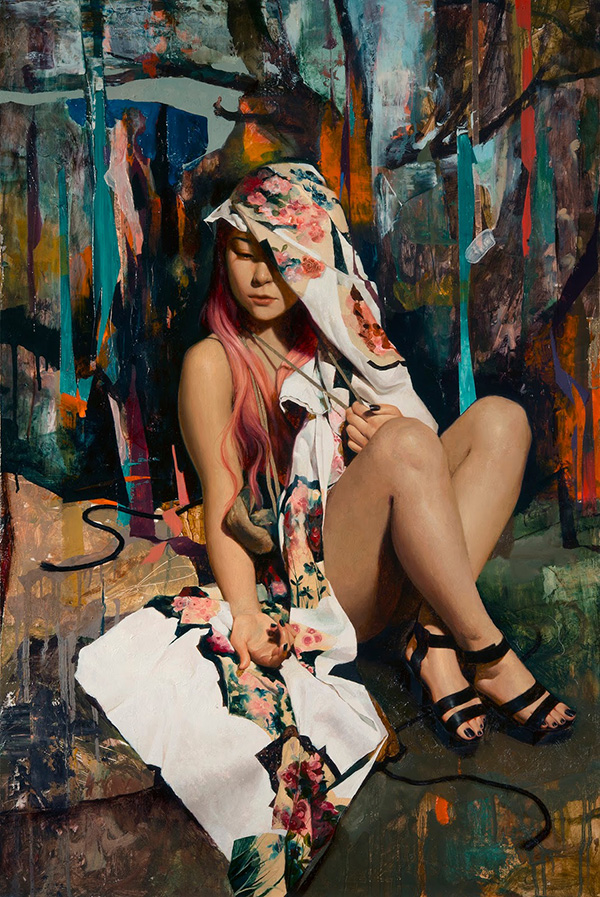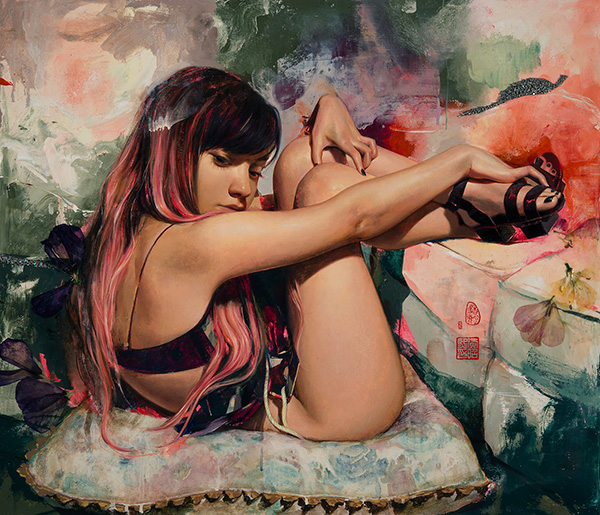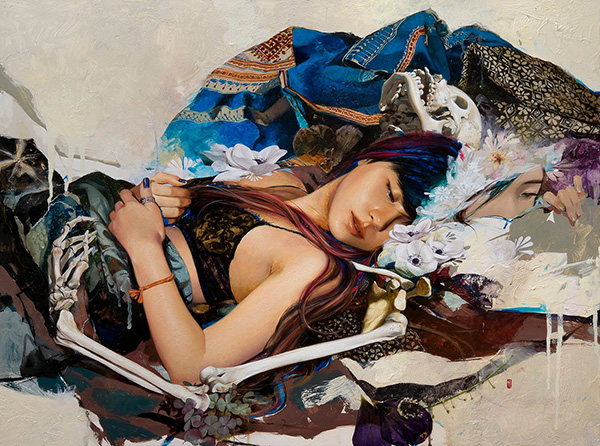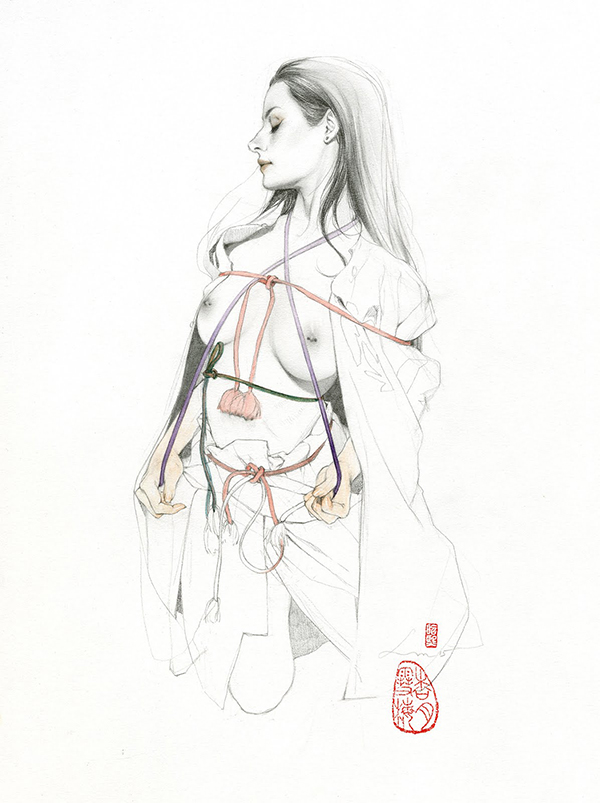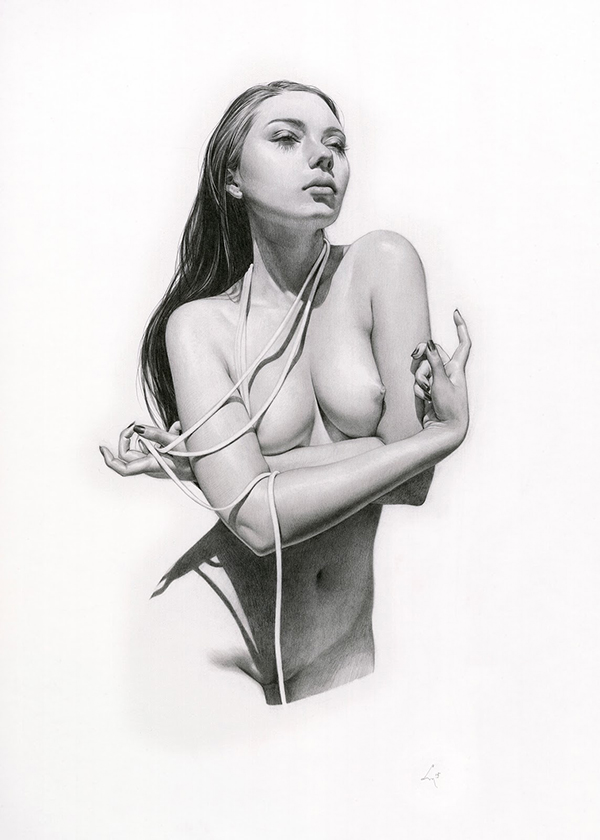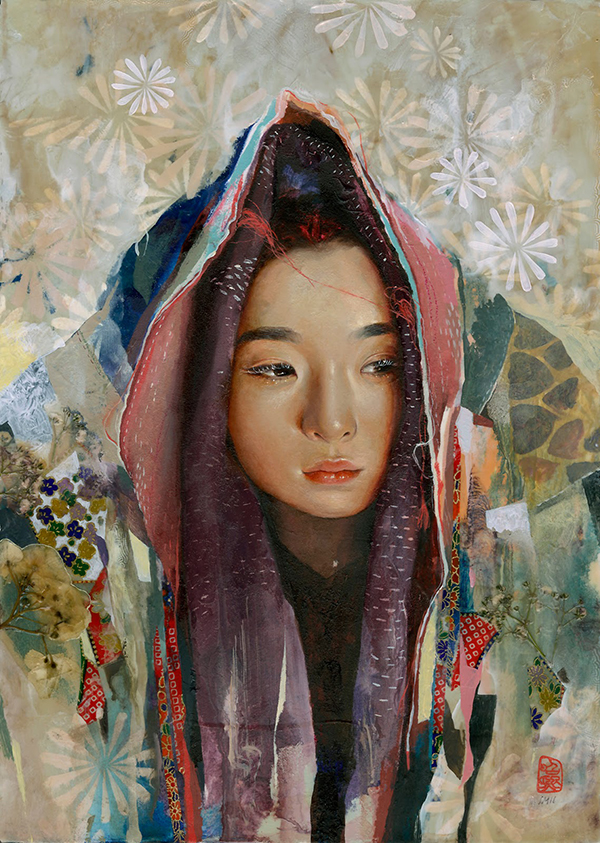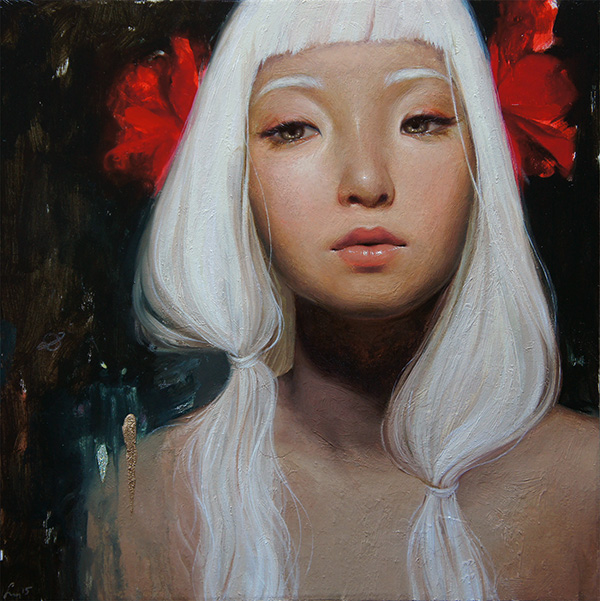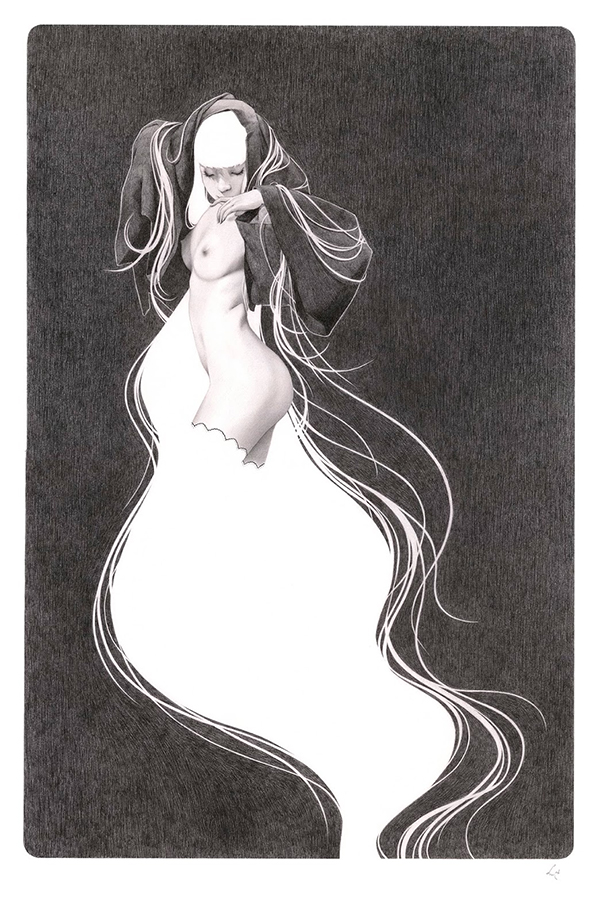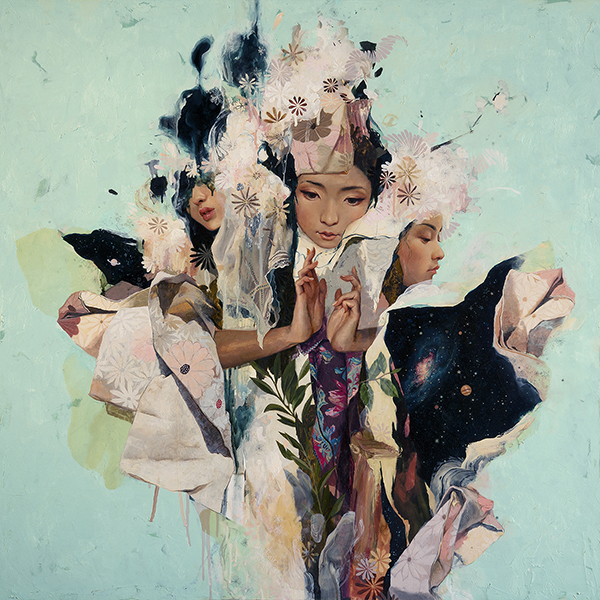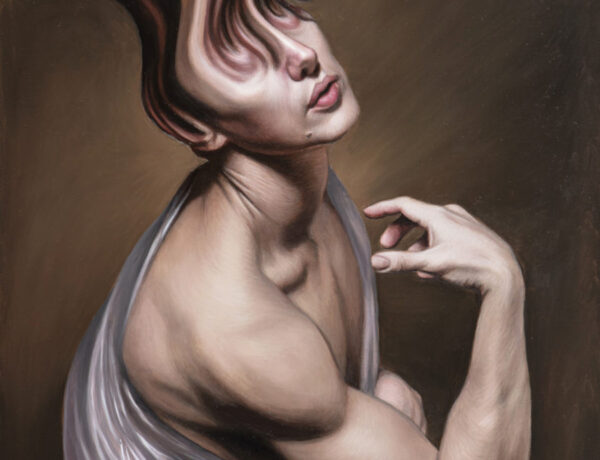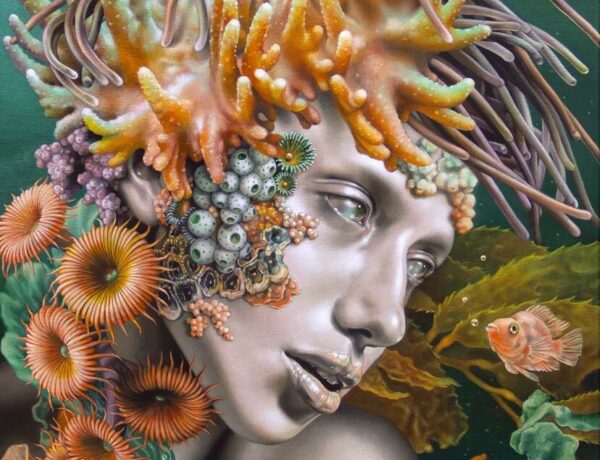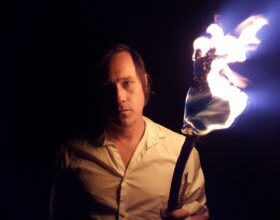Soey Milk is widely known for her intimate and lush portraiture. Milk captures fleeting moments and insights into the world of women with her evanescent pallet of soft eggshell whites, wheat gold yellows, oceanic blues and tranquil violets that highlight lips like they were a gift from the gods. Her color choice is deeply entrenched within her South Korean upbringing, however her concepts are highly personal. Each piece passes through what she calls her “human filter”; each creation develops as organically as life itself. I was extremely fortunate to interview her for issue 015 of beautiful.bizarre.
Website | Facebook | Instagram | Twitter
Justine: I’d love it if you could tell our readers a little bit about your background. Where did you grow up, do you feel it influenced your work, and were your parents supportive of your artistic tendencies?
Soey Milk: I grew up in the mountains and foothills of Seoul, South Korea. The summers there were lush, and the winters were icy and shimmery.
As a student, I noticed my intuitive palette. I tend to position deep, rich and dark hues next to clusters of vibrance. For example, I’ll play with deep purples next to bone pink and mustard yellows. They look really beautiful to me. So yes, I think the colorful seasons, from when I was a kid, and the environment that I was fortunate to grow up in had a big impact on my choices.
…My parents eventually grew to like my tendencies.
When did you first notice your artistic leanings and what artists or works first drew you towards painting?
I grew up watching cartoons and reading manga. There was one book, in particular, that I absolutely loved, and I adored the pictures — I think it was called ‘Maria’s Hide and Seek’ by Nicoletta Costa. It was translated into Korean, so I don’t know the exact title.
That book was filled with the color gray, with dots and lovely line-work and patterns. Everything in the book looked so… wonky and fascinating. At 7 years old, I drew her cats and cookies over and over, probably hundreds of times.
In my early student years, I mostly created fine detailed drawings. I was interested in everything rendered and polished. However, overtime, my interests evolved, and I began to appreciate artists like Antonio Lopez Garcia and Gustav Klimt. Then, when I met Kent Williams, the painting party started
Instagram, Facebook, Behance and others have really changed the way people view and buy art. How do you feel social media has affected the art world and where do you see your place within the social media community?
Instagram is a great tool. But I’ve not experienced the art world without social media, so I can’t compare the art world before it became active to the art world now.
As for my place in it, it has a role in my career by the connections I’ve made there. Plus…I really appreciate that I can share my dog photos too. (laughs)
There is a natural fragility and romanticism, but also a strong sensual presence in your portraits of women. Are your pieces a perspective on the nature of being female? What draws you to painting the female form? What do you hope people will take away from your work; what thoughts or perspectives are you trying to spur through your paintings?
I am a woman. I am human. My paintings hold the emotions that flow from me, from being alive. I connect with the female form through my work because I also happen to be female. So maybe I am attracted to drawing and painting the female figure because I understand it so well. After all, we tell the stories we know. The movements in my work are the gestures that I make, the things I do, the emotions and feelings I possess.
I am a young woman who is learning more, every day, what it means to flourish into a fuller being. My pieces create narratives and symbols as they simmer in my daily life. In a way, they are visual timelines, as they set pins along my path. I wish the viewers of my work will find things they can relate to. My titles and imagery work closely together, not to allude to a specific memory, but rather to show what has sifted through this, my human filter. My pieces sit with me and literally develop meaning as I am breathing, feeling, staying alive with thousands of interactions that sift through what I call ‘my human filter’ and it is the only way that the work comes alive.
You use natural plants, and other objects, within your paintings like flower petals and threads. What led you to add such a beautiful addition to your work and are there any other materials or artistic mediums you hope to work with in the future?
I continue to ask myself, “why not?” when I need to set out to explore. I started with dirt, which led to me embedding crushed crystals and to keeping a studio full of dried plant matter. I love it. It’s something beyond paint that I need to think about and plan for, but for me, it’s like adding spices to my pieces. I connect to the different textures that they give. It’s just visually intriguing to me.
Sometimes I feel like rendering peach fuzz. Other times, I feel like throwing paint rags at my paintings. I do what I can to satisfy my needs. But it’s a wonderful head change for me to be able to go back and forth from a double-zero brush to a palm sander. In the future, I’d like to try working with fire and all its beautiful qualities. Gulp.
Your process is often to make a wonderfully detailed preliminary drawing, and then move onto the painting from there, but each in their own right is a marvelous work of art. Do you ever move straight into a painting, or after doing a preliminary drawing, discover that you no longer wish to paint what you’ve sketched?
In the beginning, there’s so much mystery to a piece. My drawings act as ingredients of the piece, and the painting ‘cooks’ while I’m at work on it. How it will ‘cook,’ I have no idea. I just taste and adjust.
While the first layer of paint I put down may easily get covered with the second, third and fourth layers, there may well be a virgin panel showing through that makes it to the very end untouched. The weird thing is that when I draw, with a painting in mind, and I start to see that painting too clearly in my head, I’ll lose interest. It’s almost as if the surface needs to frighten me with it’s blankness, and then the state of ‘not knowing’ fires up something inside me. So yes, I have worked on drawings and sketches that stopped there.
What does success mean to you and what’s integral for you to continue creating and painting?
I am an organic filter, and I will continue creating as long as something passes through. Success, for me, is when I have learned a lesson.
What can we expect from you in the future? Any artists you’d like to collaborate with, people you’d like to paint, or places you’d like to visit?
I’d like to work big. I want to push myself out of the comfort zone and see if I can manage a 6 or a 10 footer. I’d love to visit Kyoto again, or experience creating there.


